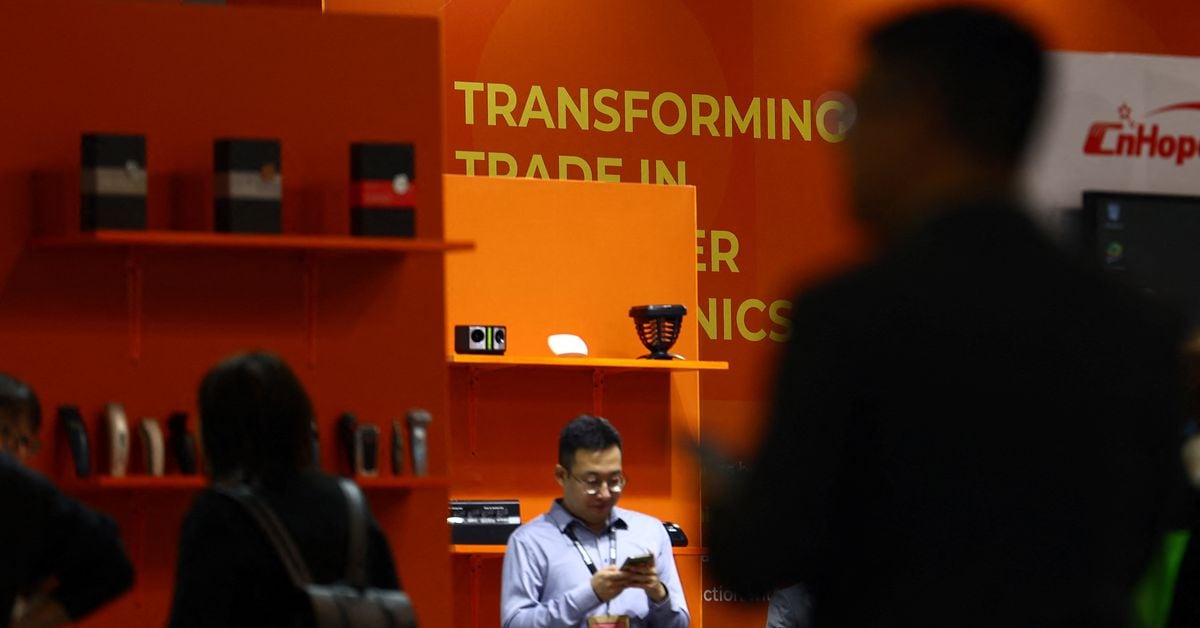
SINGAPORE, Nov 17 (Reuters Breakingviews) – Restructuring a restructuring isn’t good news. Alibaba (9988.HK) scrapped the spinoff of its prized cloud computing business, blaming U.S. curbs on advanced chips. That sent shares in the Chinese behemoth more than 10% lower in Hong Kong. The U-turn dashes market expectations of stability among technology companies after the end of Beijing’s years-long regulatory crackdown. The country’s weak economy and bad geopolitics mean the sector hasn’t yet hit a bottom.
The flip-flop adds to a string of disappointments for Alibaba’s long-suffering shareholders. In June, just months after unveiling plans to split into six independently run businesses, the $200 billion giant shocked markets with news that its CEO and Chairman Daniel Zhang would step down to focus on its cloud division. Later, Zhang also quit that business. Cainiao, the logistics arm of the e-commerce group and the first subsidiary to be separated, still has its Hong Kong listing application pending before the securities watchdog. On Wednesday, Alibaba also put on hold its IPO for its smaller Freshippo supermarket chain.
Alibaba’s U.S.-listed shares have rebounded from multi-year lows plumbed in October 2022 but have lost about three quarters of their market capitalisation since they peaked in late 2020, destroying about half a trillion dollars in value.
When the split was announced in March, analysts were valuing Alibaba at about $130 per share. At its current $79 price, markets appear to have given up on any value creation sparked by the breakup. The stock currently trades at 8 times forward earnings, well below its five-year average of 18 times, per LSEG data. The announcement of a dividend wasn’t enough to cheer up shareholders.
Alibaba’s mishaps will cast a pall over the rest of the beleaguered sector. Chinese tech majors, hobbled by the government’s massive sectoral crackdown since Alibaba’s fintech arm Ant’s initial public offering was derailed three years ago, need to rebuild their businesses. At the same time, they are dealing with an anaemic post-pandemic recovery. The collapse in the country’s housing market, a deepening youth joblessness crisis and muted consumption are weakening growth prospects for the world’s second-biggest economy. The fractious state of U.S.-China relations adds to investor worries.
Add in so-so results from Alibaba’s main businesses, also reported on Thursday, and it is hard to see a silver lining in the dark clouds gathering over China’s technology sector.
Follow @anshumandaga on X
CONTEXT NEWS
Alibaba Group on Nov. 16 announced that it would not proceed with a full spinoff of its cloud computing unit due to “uncertainties” created by U.S. control rules on advanced chips for China. It had announced the spinoff plan in March as part of a six-way carve-up of its empire.
The technology giant reported revenue of 224.8 billion yuan ($31 bln) in the three months to September, up 9% year-on-year, and in line with market estimates. Alibaba posted a net profit attributable to shareholders of 27.7 billion yuan versus a net loss of 20.6 billion yuan, due to an increase in the value of its equity investments.
Alibaba’s U.S.-listed shares fell 9% to $79 on Nov. 16. Its Hong Kong-listed shares shed 8% to HK$75 in morning trade on Nov. 17.
(The author is a Reuters Breakingviews columnist. The opinions expressed are his own.)
Editing by Francesco Guerrera and Thomas Shum
Our Standards: The Thomson Reuters Trust Principles.
